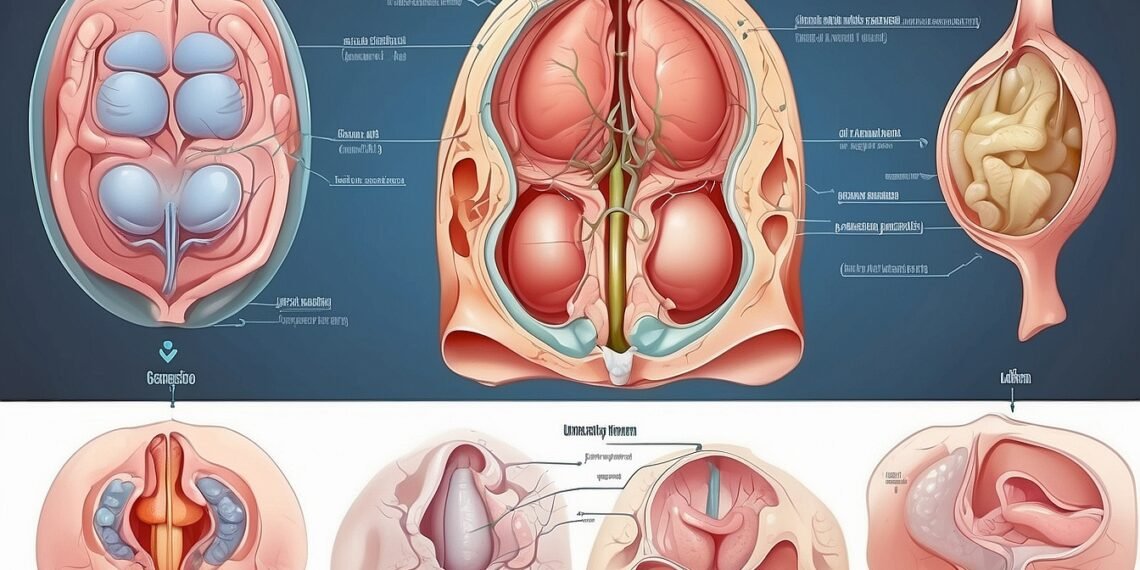While not directly causing back pain, an umbilical hernia can sometimes lead to discomfort in the lower back and surrounding areas. This can happen in two ways:
Direct/Indirect Mechanisms:
- Nerve compression: A large hernia bulge may press on nearby nerves, causing pain, numbness, or tingling in the back.
- Muscle strain: Compensating for the hernia’s presence may lead to strain and tightness in the back muscles, leading to pain.
Treatment Options:
- Observation: For small hernias that don’t cause symptoms, observation and lifestyle changes might be sufficient.
- Hernia repair surgery: This involves pushing the protruding tissue back into the abdomen and reinforcing the weakened abdominal wall.
- Pain management: In some cases, medication or physical therapy may be necessary to manage pain while awaiting surgery.
Definitions:
- Nerve compression: When pressure is applied to a nerve, causing pain, numbness, or tingling in the area it supplies.
- Muscle strain: Injury to a muscle or tendon, causing pain, weakness, and stiffness.
- Hernia repair surgery: A surgical procedure to repair a weakened area in the abdominal wall and prevent further bulging of organs or tissues.
When to See a Doctor:
Seek medical attention if you experience:
- Severe pain in your abdomen or back.
- A bulge that changes color or becomes tender or hard.
- Nausea, vomiting, or fever.
- Difficulty swallowing or breathing.
Additional Resources:
- National Institutes of Health: https://www.ncbi.nlm.nih.gov/books/NBK459312/
- Mayo Clinic: https://www.mayoclinic.org/diseases-conditions/umbilical-hernia/diagnosis-treatment/drc-20378689
- American College of Surgeons: https://learning.facs.org/content/acs-multimedia-atlas-surgery-hernia-surgery-volume
- YouTube video on umbilical hernia repair surgery: https://www.youtube.com/watch?v=iqak4UofnzQ
Remember, although less common, umbilical hernias can cause back pain. Consulting your doctor for diagnosis and personalized treatment is crucial.
Follow-up questions on umbilical hernia and back pain:
Specifics of Pain:
- Where exactly do you feel the back pain? (Is it in the upper, middle, or lower back?)
- What type of pain is it? (Is it dull, sharp, aching, burning, or tingling?)
- How severe is the pain? (On a scale of 1 to 10, with 1 being the least painful and 10 being the most painful)
- Does the pain come and go, or is it constant?
- What makes the pain worse? (Certain activities, positions, or movements?)
- What makes the pain feel better? (Rest, heat, medication?)
- Have you noticed any other symptoms besides back pain? (Nausea, vomiting, constipation, fever, etc.)
Relationships:
- How is the back pain affecting your daily activities?
- Are you having difficulty sleeping due to the pain?
- How is the pain impacting your relationships with family and friends?
- Do you feel supported by your loved ones in managing the pain?
Treatment and Management:
- Have you been diagnosed with an umbilical hernia?
- If so, what size is the hernia?
- Have you tried any treatments for the hernia or the back pain?
- If so, what were the results?
- Are you considering surgery to repair the hernia?
- What are your concerns about surgery?
Other Potential Causes:
- Do you have any other medical conditions that could be causing the back pain?
- Have you recently experienced any injuries or falls?
- Do you have a family history of back pain?
Additionally:
- Have you noticed any changes in your weight or activity level?
- Do you smoke?
- Do you drink alcohol?
- Do you have any allergies?
By asking these follow-up questions, you can get a better understanding of the person’s situation and provide them with the best possible care.

